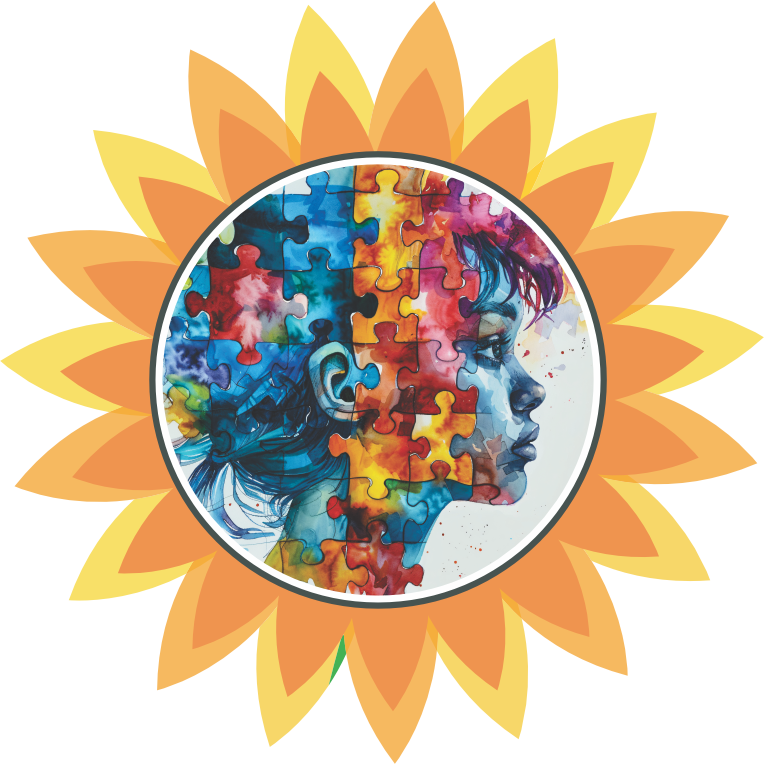Since the book came out, I have received a few messages, stating the following:
- Autism cannot be cured. Hence the title of my book is misleading, giving false hope to the parents.
- You have used this title, so that gullible parents buy your book in hope of cure.
- Autism can only be managed or masked.
- We should not talk about cure, we should only speak about support and inclusivity of neurodivergent people.
- Autism is a neurological condition, so a cure means you can rewire the brain. Please show scientific evidence of that.
Here is a sample message:
Hello Mr Bhatia,
I have been shown a cover of a book written by you stating in the title ’a cure for Autism’ I have to say I am more than disappointed that you claim to have 18 years experience with ASC yet you claim there is a cure!!
There is no cure for autism as it is a neurological condition. The way the brain is wired!! It is possible to support people with ASC to manage society in a more socially acceptable way to make their lives less stressful and to help them navigate life as is best for them. Children, young people and adults with Autism don’t need to be ‘fixed’ or ‘cured’ they need support and understanding! It is not a disease that needs curing this language makes things more difficult for people with ASC You should definitely re-think the title of your book!
I work with neurodiverse children and am also a mother. I don’t want my children to be cured I want them to be respected and understood.
With Regards,
Ms X
After having a discussion with Ms X on Instagram, I realized that it’s very difficult to convince a person who has already made up his mind against you. What can you say to a person, who is willing to criticize a book, without even reading it? I also realized that I need to put my thoughts in one place which I can forward to such people, rather than spending my time on individual discussions. So let me address all the above points and objections.
Who Am I?
I am Dr Manish Bhatia. I hold a Bachelor’s degree in Computer Applications (BCA) and a Bachelor’s degree in Homeopathy Medicine & Surgery (BHMS). I have a masters (M.Sc.) from the University of Central Lancashire (UK) and I am also one of the first few homeopathic pediatricians in India and hold a degree in MD (Hom) Pediatrics. I started practicing in 2001, so have 23 years of clinical experience as of now. I started working with autistic children in 2006, so have nearly 18 years of working experience in autism. You can find more details about me here.
What is the book about?
While preparing for a free parent education webinar on World Autism Awareness Day 2024 (April 2), I realised that there are so many questions about autism that parents have and there is no one place for them to find the answers. I wanted to make the journey of the parents, whose children get diagnosed with autism, a bit easier by putting together a guide where they will get answers to their numerous queries regarding the cause of autism, its diagnosis and treatment, therapies, diet, supplements, alternative medicine, schooling etc.
As a pediatrician with 18 years of experience in treating autism, I have seen parents puzzled and distraught with the diagnosis. I have seen their sadness and despair when they read online that there is no cure. I have seen their hope when their child starts improving. I have seen their ecstasy when their child comes out of the spectrum, or becomes fully verbal, or joins a regular school.
When writing this book, I wanted to offer some hope to the parents and not add to their despair. My long clinical experience tells me there is hope and I want to extend that hope and a helping hand to all the parents.
Is autism a disease?
No, autism is not a disease. Autism, or Autism Spectrum Disorder (ASD), is a neurodevelopmental condition that affects how individuals perceive, communicate, and interact with the world around them.
If it is not a disease, can we use the term ‘cure’ for it?
To answer this, we need to understand two things:
Autism might not be called a ‘disease’, it might be called a ‘condition’ or ‘disorder’, but is it normal to have it? Is it merely neurodiversity? If it is only neurodiversity, why was it barely there 3-4 decades ago?
My understanding is that we call autistic children ‘neurodiverse’ for better social acceptance and inclusivity, but it is not a normal healthy state to be in. And we have not even spoken about regressive autism yet.
If it is not a normal healthy state, can it be cured?
The term cure typically refers to a treatment or intervention that eliminates a disease or condition, restoring health and removing its causes or symptoms. It implies a resolution of the condition to the point where it no longer exists or affects the person.
My experience has been that many mild cases of autism can come out of the spectrum, and many of them can become neurotypical too, provided the case is mild (ISAA score < 107, CARS score <37). The lower the score, the better the prognosis. The prognosis also depends upon the age at which the treatment begins. The ideal age is between 2 to 4. The earlier the treatment begins, the better the prognosis. There is a lot of neuroplasticity (the ability of the brain’s neural networks to change and reorganize) till the age of 7 and many children can show remarkable changes due to the brain’s inherent ability to grow and rewire. These changes can be to an extent, where the child cannot be labeled autistic anymore and the health (from social norm perspective) is restored.
In some cases, children can come out of the spectrum (ISAA<70, CARS< 30) and yet they may not become neurotypical. When we start treating an autism case, the effort is to bring the child out of the spectrum. In this process, some cases become neurotypical too, where there is no hint or trace of autism perceivable. I only use the word ‘cure’ for such cases. ‘Cure’ is an outcome where the child becomes neurotypical, it is not the primary objective of treatment at the onset. The primary objective is to bring the child out of the spectrum, or to reduce their challenges and aid in their development where it is not possible to bring the child out of the spectrum.
The term cure can also be used in cases of regressive autism, where the child has normal development till age 16 to 20 months and then suddenly regresses to become autistic. If the health of such a child is restored to his pre-regression level, can’t we call it a cure?
If you can’t cure everyone, why use the term in the book title?
Because I want to give parents the possibility that with the right treatment (which includes homeopathy, supplements, diet and therapies), many cases can recover to the point of coming out of the spectrum or becoming neurotypical. I feel the parents need this hope. If you wish to call it ‘false hope’, I can’t argue with it. I am just sharing my experiences.
You are doing this so that your book sells more?
I don’t think people buy books merely by reading titles and I hope people will not buy this book merely on the basis of the cover or the title. I am not selling a magic potion and not claiming that every case can be cured. People can read more details about the book in the descriptions at ecom websites, and here at autismasha.com. They are free to read the reviews also before buying the book. There is even a free reading preview available that you can download and read before purchasing the book. If you have Kindle unlimited, you can even read the book for free with that subscription.
Also, if the book is not useful, it will accumulate negative reviews overtime and people won’t buy it. I am comfortable with that too and don’t have my ego attached to the success of this book. I have written the book with good intent. Its destiny is beyond my control.
So what about those cases that can’t be ‘cured’?
Well, my experience has been that nearly all children show improvement with proper medicine and therapies. To what extent a child will improve depends upon number of factors like age, gender, severity etc.
And we do need to work on better acceptance, inclusivity and greater support for every child who remains on the spectrum. There is no question about that.
You say your book is backed by extensive scientific research, please show that research.
Yes, I have tried to give research references wherever possible for all the chapters.
I am not a scientist but a clinician and primarily the book is about sharing clinical insights and serving as a guide to parents. It is not a research paper. However, it refers to hundreds of published studies regarding cause, treatment, diet, supplements, therapies etc. Please check the book for more details.
I hope this clarifies lot of objections. Some of you may still choose to disagree, which I accept and respect. I have laid down my thoughts and have nothing more to say, except – Don’t judge the book by it’s title or cover. Get a copy and read it first.



Thank you for approaching the care of these children with hope and determination. This is what every child and family facing this needs and so few have. Thank you for sharing your clinical experience, it is greatly appreciated.
Carol Crevier, RN MPH DNP FNP